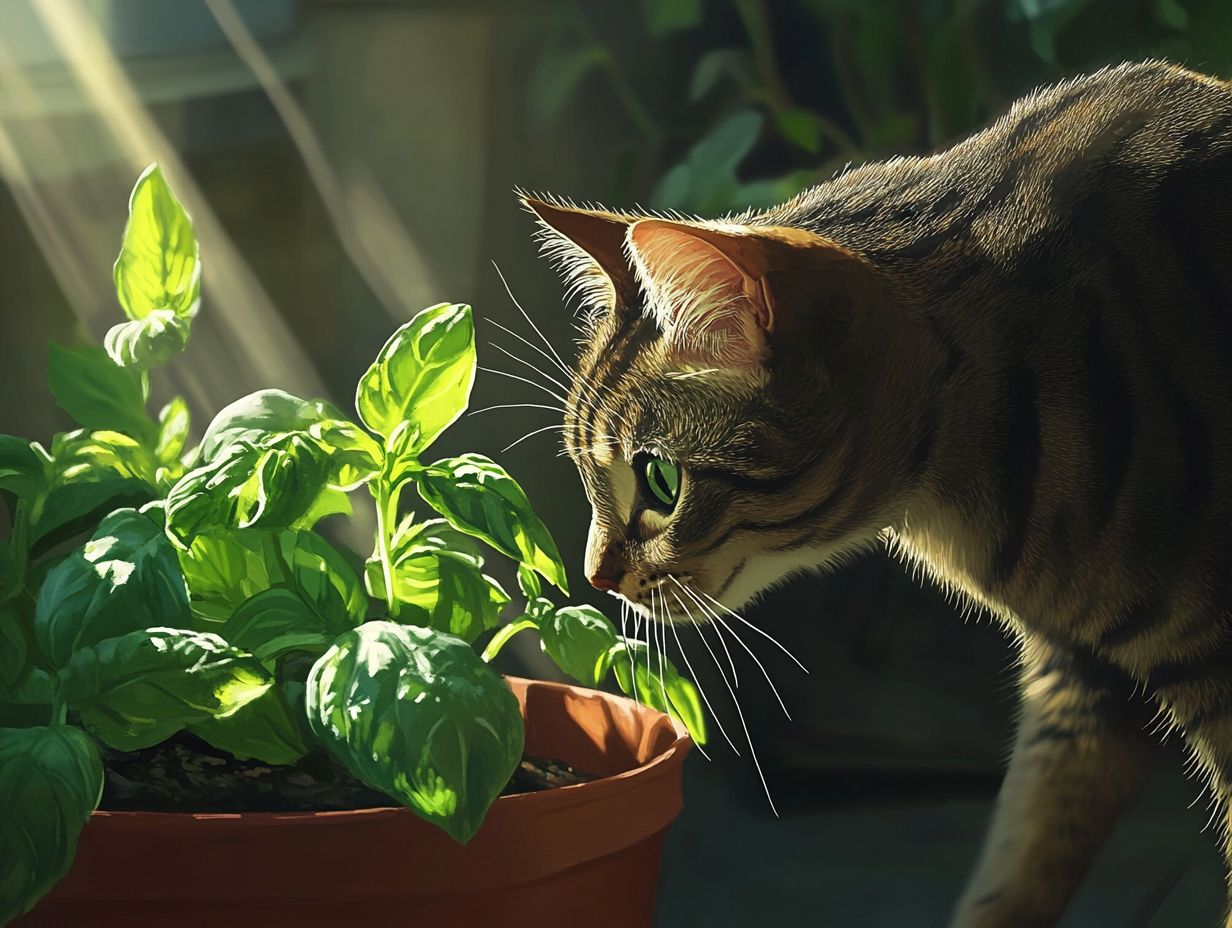Curious about whether basil is safe for your feline friend? This aromatic herb boasts culinary flair and potential health benefits for cats, making it one of the safe herbs for cats. In this article, we’ll address your concerns about basil and its suitability for your cat’s health and diet.
The Nutritional Value of Basil for Cats
Basil offers a range of nutritional benefits that can be advantageous for cats when introduced properly. This aromatic herb is rich in vitamins and antioxidants, which can enhance a cat’s overall health, boost their immune system, and aid in digestion.
Key Nutrients and Benefits
Basil is a supportive herb in a cat’s diet due to its key nutrients, including vitamins A, K, C, and various antioxidants. Vitamin A is crucial for vision and immune function, while vitamin K plays a vital role in bone health and blood clotting. Although cats can produce vitamin C themselves, it can also be supplemented through natural sources like basil.
For best results, introduce basil gradually, starting with a small pinch (approximately 1/8 teaspoon) of fresh or dried basil mixed into food, and observe your pet for any reactions. Most veterinarians recommend a maximum serving size of 1/4 teaspoon per meal, offering it once a week.
Potential Risks of Feeding Basil to Cats

Basil is generally safe for cats; however, some may experience allergic reactions. Symptoms to watch for include vomiting, diarrhea, or skin irritations. If your cat shows signs of distress after consuming basil, consult your veterinarian.
Alternatives to Basil for Cats
If basil isn’t suitable for your cat, consider safe alternatives such as rosemary, sage, thyme, and coriander. These cat-friendly herbs can be safely added to your pet’s diet and offer various health benefits.
Safe and Nutritious Herbs for Cats
- Rosemary: Rich in antioxidants, it can bolster the immune system.
- Sage: May assist with digestive issues and has anti-inflammatory properties.
- Thyme: Supports respiratory health in cats.
- Coriander: Stimulates appetite and may alleviate digestive problems.
How to Incorporate Basil into a Cat’s Diet

Basil can be offered fresh or dried, ensuring your cat enjoys the flavors and potential health benefits. Always practice safe serving sizes and preparation methods.
Frequently Asked Questions
1. Can cats eat basil?

Yes, cats can eat basil in moderation; however, it’s crucial to monitor for any adverse reactions.
2. What are the benefits of basil for cats?
Basil may provide health benefits, including improved digestion and appetite stimulation.
3. How should basil be prepared for cats?
Basil can be offered fresh or dried, but ensure it is in small amounts to avoid any digestive upset.
Summary: Basil can be a safe and beneficial herb for cats when introduced correctly. Always consult a veterinarian before adding new herbs to your pet’s diet, monitor for adverse reactions, and enjoy exploring safe herbs that can enrich your cat’s meals.